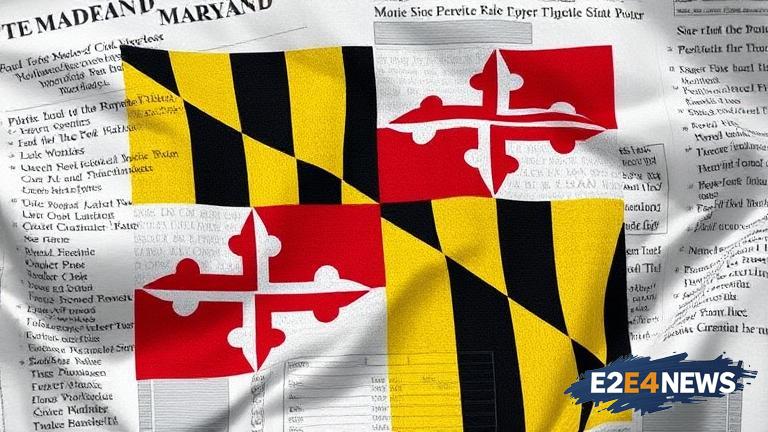The state of Maryland has recently responded to a federal request for voter data, marking a significant step towards ensuring the integrity and transparency of the electoral process. This move is part of a broader effort by the federal government to review and enhance the security of voter registration rolls across the country. Maryland’s compliance with the request demonstrates its commitment to upholding the principles of democracy, including the protection of voter privacy and the prevention of voter fraud. The request, which was made by the Federal Election Commission, seeks to obtain information about registered voters in Maryland, including their names, addresses, and voting history. The data will be used to identify potential vulnerabilities in the voter registration system and to develop strategies for improving its security. Maryland officials have assured the public that the release of this information will not compromise the privacy of voters, as it will be shared in a secure and encrypted manner. The state has also implemented various measures to protect the data from unauthorized access, including the use of secure servers and encryption technologies. The federal government’s request for voter data has been met with skepticism by some, who argue that it could be used to disenfranchise certain groups of voters. However, Maryland’s decision to comply with the request suggests that the state is confident in its ability to balance the need for transparency with the need to protect voter privacy. The release of voter data is also expected to promote transparency in the electoral process, allowing voters to verify the accuracy of their registration information and to ensure that their votes are being counted correctly. Furthermore, the data will be used to identify areas where voter turnout is low, allowing election officials to develop targeted strategies for increasing voter participation. Maryland’s response to the federal request is also seen as a positive step towards improving the overall security of the electoral process. The state has been at the forefront of efforts to enhance election security, implementing various measures such as paper ballots and post-election audits to ensure the integrity of the vote. The use of voter data will also help to identify potential security risks, such as voter registration fraud or cyber attacks on election systems. By addressing these risks, Maryland can help to prevent the types of election security breaches that have occurred in other states. In addition to promoting transparency and security, the release of voter data is also expected to have a positive impact on voter engagement. By providing voters with access to their registration information, the state can help to increase voter awareness and participation, particularly among underrepresented groups. Maryland’s decision to comply with the federal request for voter data has been praised by election security experts, who see it as a necessary step towards ensuring the integrity of the electoral process. The state’s commitment to transparency and security is also seen as a model for other states to follow, as they seek to enhance the security of their own election systems. Overall, Maryland’s response to the federal request for voter data demonstrates its commitment to upholding the principles of democracy, including the protection of voter privacy and the promotion of transparency in the electoral process. By prioritizing voter security and transparency, the state can help to ensure that its elections are free, fair, and accessible to all eligible voters. The release of voter data is a significant step towards achieving this goal, and it is expected to have a positive impact on the overall integrity of the electoral process in Maryland. As the state continues to prioritize election security and transparency, it is likely that other states will follow its lead, leading to a more secure and transparent electoral process nationwide.
